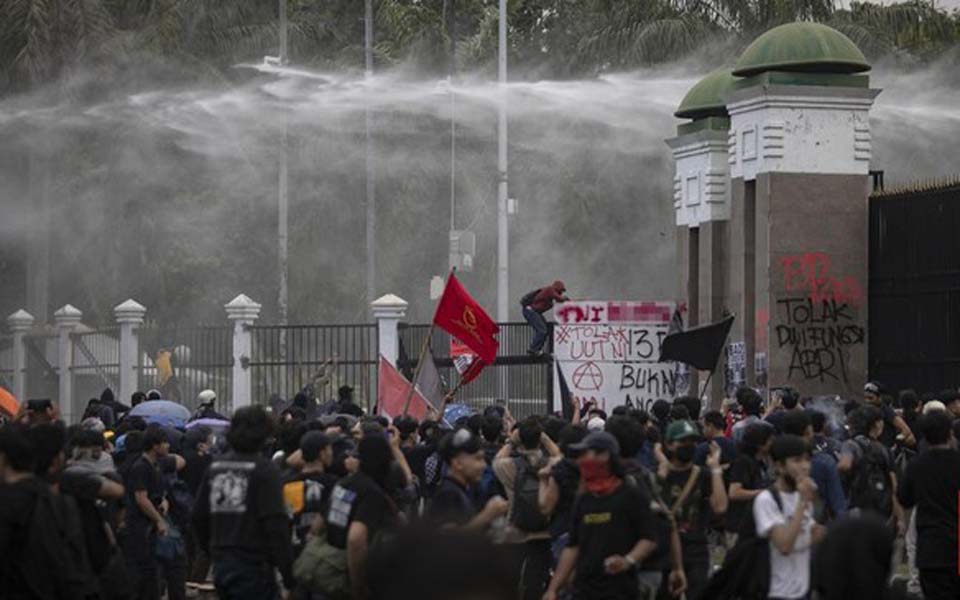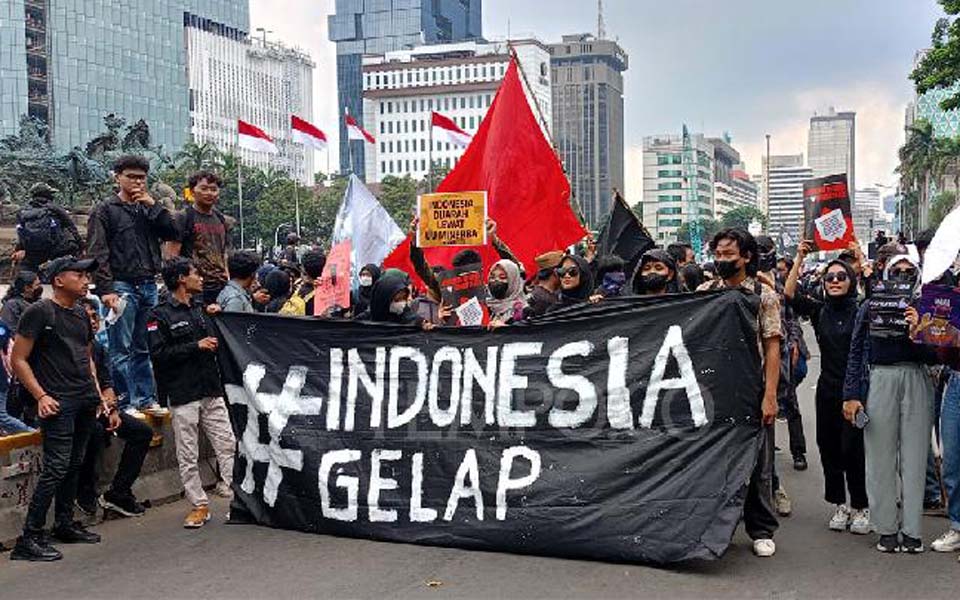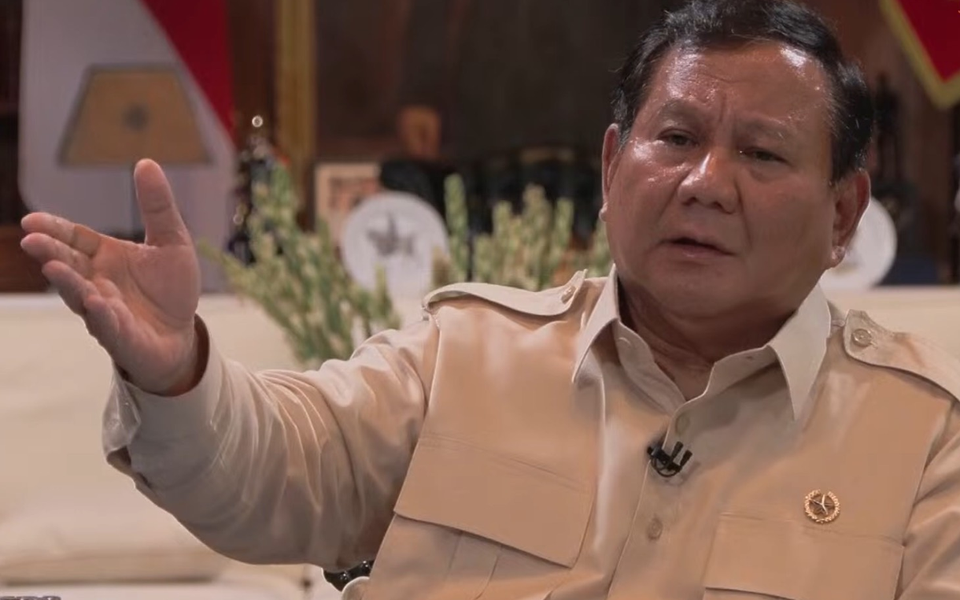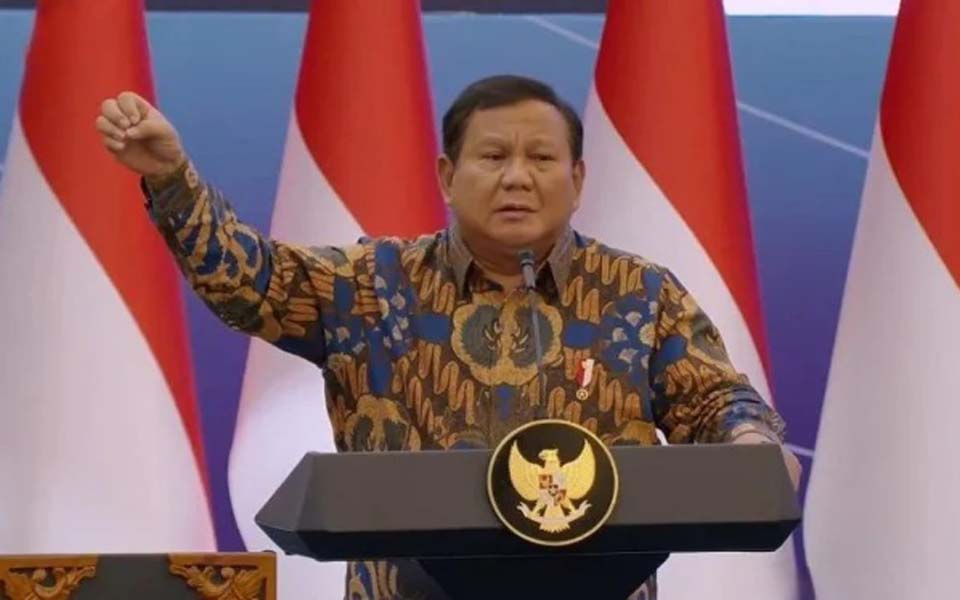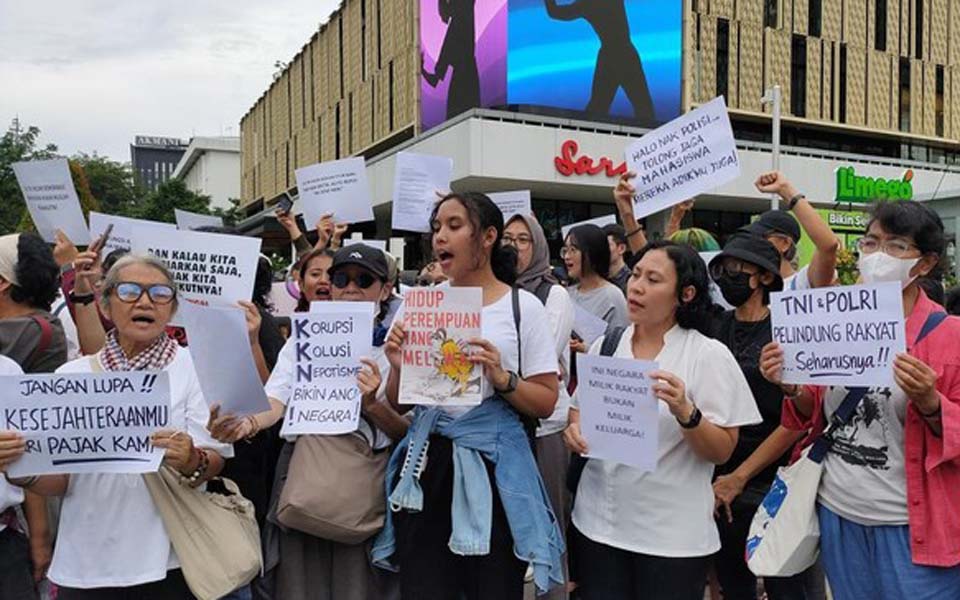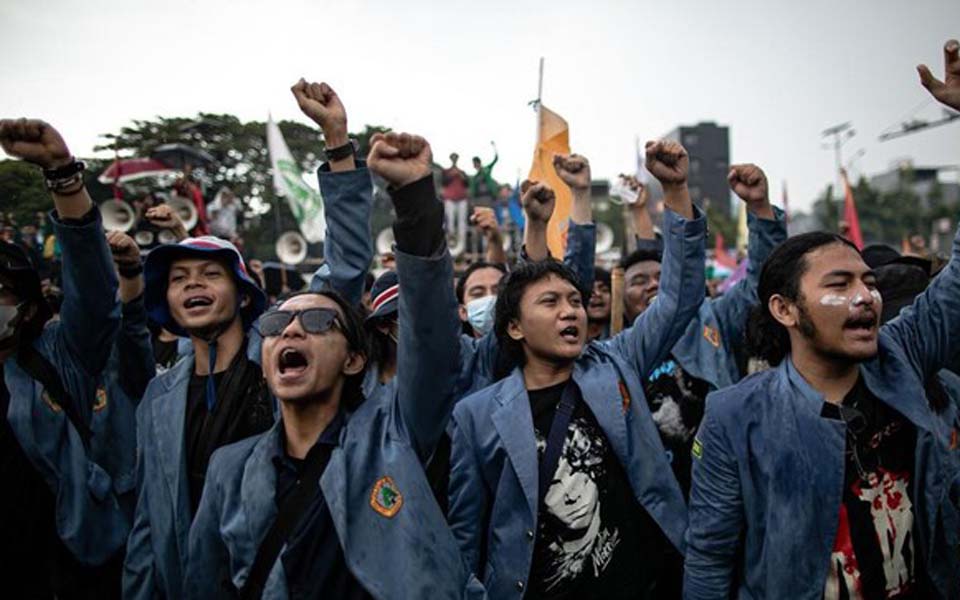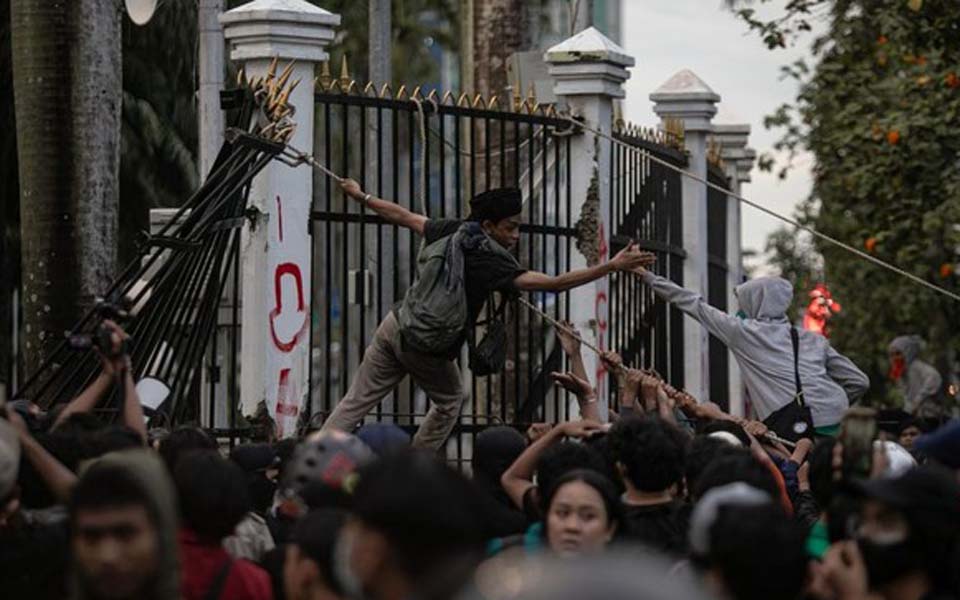Jakarta – Protests against the Omnibus Law on Job Creation have spread to almost all parts of the country since it was passed into law during a House of Representatives (DPR) plenary session on Monday October 5.
Waves of demonstrations since the law was enacted culminated on Thursday October 8. In Jakarta, where for the first two days police succeeded in blocking demonstrators, there were no protest actions near the Presidential Palace. But in several cites however, including Jakarta, the demonstrations ended in chaos.
Coordinating Minister for the Economy, Airlangga Hartarto, has declared that the government knows who is taking advantage of the mass protests against the Omnibus Law for their own interests. But, the man who is also the general chairperson of the Golkar Party did not provide details the accused parties, except to refer to them as “elite-intellectuals”.
“Actually, the government knows who’s [behind] the demos, we know who’s mobilising them, who the sponsors are, who’s funding it. The government knows the intellectual figures behind the demos”, said Hartarto during a Squawk Box program on CNBC Indonesia TV on Thursday morning.
On Thursday evening, after the atmosphere had calmed down in several parts of the country, Coordinating Minister for Security, Politics and Legal Affairs Mahfud MD stated that the demonstrations which ended in violence, damaged public facilities and injured government officials were criminal acts which can be prosecuted under the law.
“Actions which damage public facilities and attacks against officials and the public are actions which are insensitive to the public which is fighting against the [corona virus] pandemic”, said Mahfud during a press conference on Thursday evening.
Not only that, social media has been full of accusations and counter accusations about whether the protest were taken advantage of by a particular group, or were a result of the ordinary people’s anger.
Brewing for some time
In response to this polemic, Andalas University sociologist Indraddin says that the mass movement of workers and students in almost all parts of Indonesia were motivated by the same spirit. He believes that the protests against the Omnibus Law were not something that just erupted over the last two or three days.
The problem, he said, is that the issue has been brewing since it was first touted by President Joko “Jokowi” Widodo during his first speech after being inaugurated as president for a second term through to the deliberations at the DPR and its enactment.
Because of this therefore, Indraddin believes that the government’s accusation that an actor or actors took advantage of the mass movement is being used as a “ghost weapon” to contain the protests and to create a new discourse among the public.
“So usually the strategy when demonstrators are struggling to make themselves heard, at these times the government tries to divide them by intimidating them with this accusation. Yes, the government is kind of frightened”, said Indraddin when contacted by CNN Indonesia on Friday October 9.
Indraddin views the demonstrations against government policies or those who make laws which are not seen as siding with the ordinary people is a normal phenomenon. This, he said, is a form of disappointment against policy makers in a democratic country who don’t listen to the public’s voices beforehand.
“It would be different if it had only just been discussed for a month, then lots of protests, that would raise suspicions [of it being taken advantage of]. Now, this has been going on for months and months and was done by thousands [of people] simultaneously all over Indonesia”, said Indraddin.
Aside from this, he believes that the root cause of the riots was actually the government’s response. Imagine if from the start lawmakers had been transparent and involved the public in the law’s deliberations, then protest actions ending in riots would have been minimal.
“The government never focused on assuaging the voices of the masses by for example postponing a decision on the law, but instead turned the police on them”, he said.
Bias and unclear accusations
National University sociologist Sigit Rochadi meanwhile said that the government’s accusation that there is an actor or that sections of the elite took advantage of the mass actions is bias and unclear because it was very fluid on the ground. He believes that it is difficult to identify the individuals who took to the streets when the demonstrations broke out.
“Although if seen from the ground, perhaps there was a group of people who provoked the students and workers to riot. Because workers have held strikes several times, students who hold these action don’t behave anarchically”, said Rochadi when contacted by CNN Indonesia on Friday.
Despite this, he did not deny allegations of premeditated vandalism if you look at what was damaged – from torching police posts, TransJakarta bus stops and the Department of Energy and Mineral Resources.
“If viewed from the facilities which were damaged the target was clearly to being down the government’s authority. It’s very possible that workers were not the perpetrators, for workers they usually aim to damage factories or the labour ministry’s office”, he said.
Because of this, Rochadi believes that the riots and the vandalism involving the demonstrators, which was based on a conscious objection to government policies, might have been taken advantage of by other parties to create riots.
“There are indications of other forces who took advantage of the labour and student movement”, he said.
Government hoaxes
Amar Law Firm director Alghiffari Aqsa meanwhile said that the accusations by Airlangga Hartarto could be said to be a hoax if they cannot be proven.
“Minister Airlangga has been spreading a hoax so that the public won’t protest” Aqsa told CNN Indonesia on Friday.
He also says that Hartarto is insulting hundreds of academics, religious pupils, students, labour organisations and millions of other people who signed petitions opposing the Omnibus Law.
Aqsa himself believes that the recent protests against the Omnibus Law were held on the initiative of the ordinary people who could see the risk of injustice that the law carries.
The actions against the Omnibus Law would not have grown or spread to almost every part of the country and have involved so many cross-sector elements if there had been a party sponsoring the demonstrations.
“There were donations from the public like masks, hand sanitisers, and so forth but because of sympathy and solidarity, not by an action sponsor”, said Aqsa.
Furthermore, he also challenged the government, particularly Hartarto, to reveal which parties exactly were the sponsors and backers of the Omnibus Law.
Ordinary people angry
Speaking in the same vein, Jakarta Legal Aid Foundation (LBH) head of advocacy, Nelson Nikodemus Simamora, was also scornful of Hartarto’s statement. “On Hartarto’s statement, it’s a public deception”, said Simamora.
Furthermore, Simamora said that the public is often fed the narrative by the political elite that large protest actions are “always taken advantage of” by parties with a particular interest. The opposite is in fact the case. The public held demonstrations because they were angry over being manipulated by state officials.
“The ordinary people are angry because they’ve been manipulated”, he said. “Besides declaring that “the demos were taken advantage of” is none of Airlangga’s business [as coordinating economics minister]”.
Thousands arrested
Separately, National police public relations division head Inspector General Argo Yuwono said that 3,862 people had been arrested in various parts of the country in relation to the riots during the protests against the Omnibus Law.
“There are indications that several of the people arrested are from anarchist groups, as many as 796 people in South Sumatra, Bengkulu, Lampung, East Java, Polda Metro Jaya (Jakarta), North Sumatra and West Kalimantan”, said Yuwono at the national police headquarters in South Jakarta on Friday.
In the case of the high-school students and children, he continued, the police will summon their parents so that they can be supervised in the future.
Earlier, almost all of the protest actions around the country ended in clashes between demonstrators – who were dominated by university and high-school students – and the police.
The trigger for the protest actions in large cities across Indonesia was the enactment of the Omnibus Law during a DPR plenary meeting on Monday. The plenary meeting itself was brought forward after initially being scheduled for October 8. (khr, rzr/bac)
[Translated by James Balowski. The original title of the article was “Aksi Tolak UU Ciptaker vs Tuduhan soal Demo Ditunggangi”.]







